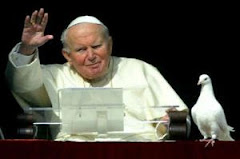http://www.usccb.org/issues-and-action/human-life-and-dignity/labor/labor-day-statement.cfm
Workers and Their Unions: Affirmation and Challenge
Beginning in Rerum Novarum, the Church has consistently supported efforts of workers to join together to defend their rights and protect their dignity. Pope Leo XIII taught that the right of workers to choose to join a union was based on a natural right and that it was the government’s obligation to protect that right rather than undermine it (Rerum Novarum, no. 51). This teaching has been affirmed consistently by his successors. Pope John Paul II, in his powerful encyclical Laborem Exercens, noted unions "defend the existential interests of workers in all sectors in which their rights are concerned. . . . [They] are an indispensable element of social life, especially in modern industrialized societies" (no. 20). Most recently, in Caritas in Veritate, Pope Benedict XVI said, "the repeated calls issued within the Church’s social doctrine, beginning with Rerum Novarum, for the promotion of workers’ associations that can defend their rights must therefore be honored today even more than in the past . . ." (no. 25).
There have been some efforts, as part of broader disputes over state budgets, to remove or restrict the rights of workers to collective bargaining as well as limit the role of unions in the workplace. Bishops in Wisconsin, Ohio, and elsewhere have faithfully and carefully outlined Catholic teaching on worker rights, suggesting that difficult times should not lead us to ignore the legitimate rights of workers. Without endorsing every tactic of unions or every outcome of collective bargaining, the Church affirms the rights of workers in public and private employment to choose to come together to form and join unions, to bargain collectively, and to have an effective voice in the workplace.
The Church’s relationship with the labor movement is both supportive and challenging. Our Church continues to teach that unions remain an effective instrument to protect the dignity of work and the rights of workers. At their best, unions are important not just for the economic protections and benefits they can provide for their members, but especially for the voice and participation they can offer to workers. They are important not only for what they achieve for their members, but also for the contributions they make to the whole society.
Thursday, August 25, 2011
Tuesday, August 9, 2011
Pope Welcomes Machinists Union

Machinists Union Leaders Received by the Holy Father, Discuss Church/Labor Strategies to Advance Social Justice
International Association of Machinists (AFL-CIO) President Tom Buffenbarger discusses the bond between the labor movement and the Catholic Church with Pope Benedict XVI at the Vatican in Rome.
The labor movement and the Catholic Church have long held shared goals of equality and opportunity. Each Labor Day, Interfaith Worker Justice (IWJ) and the AFL-CIO sponsor the Labor in the Pulpits/on the Bimah/in the Minbar program, which highlights these shared goals.
With the long-standing ties between labor and the Catholic Church, a delegation of IAM leaders from the United States and Canada met recently with Pope Benedict XVI at the Vatican in Rome.
In addition to the audience granted to the IAM delegation, the pope met privately with IAM President Tom Buffenbarger, where they discussed the concern that some Catholic bishops are not as supportive of the labor movement as the bishops once were.
The Catholic Church has a long history of inspiring and supporting labor, civil and human rights campaigns, from the pro-labor encyclical “Rerum Novarum” issued by Pope Leo XIII in 1891, to the activities of Dorothy Day, John Cort, George G. Higgins and hundreds of priests and bishops who marched with U.S. civil rights activists. The Church teaches that labor unions are an indispensable part of a just society.
Says President Buffenbarger:
For many years, the Catholic Church and the North American Labor Movement worked closely to promote a better life for their respective congregations. That alliance was an essential ingredient to the success of many social justice initiatives in the past and can provide the foundation for similar achievements in the future.
The recent meeting between Benedict XVI and Buffenbarger follows in the footsteps of a 1985 meeting between Pope John Paul II and former IAM President William Winpisinger. Both men supported Poland’s Solidarity trade union movement, which was a major factor in that country’s peaceful transition to democracy and the collapse of communism in the Soviet Union.
Subscribe to:
Posts (Atom)






